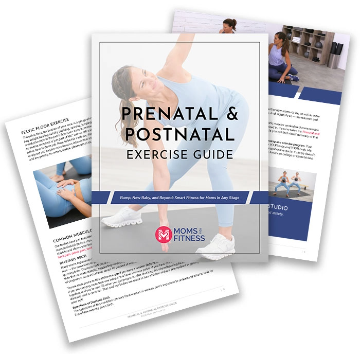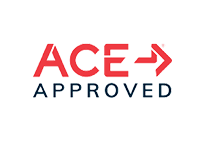
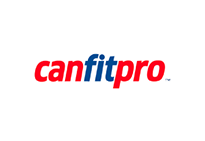
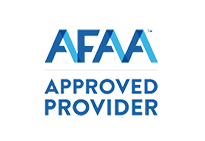
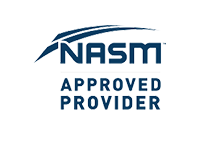

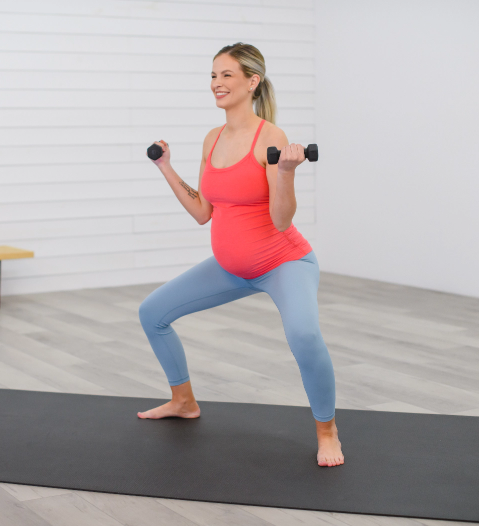
Gain the ability to properly address common prenatal concerns, such as: exercising during infertility, pre-conception and early pregnancy, proper exercise intensity during pregnancy, how a baby in the womb reacts to exercise, and the body’s response to exercise during pregnancy. Also to attend to misconceptions regarding the relationship between exercise, and infertility and miscarriage.

Increase your knowledge of the physiological changes that postnatal clients will experience immediately following birth and up through the first 12 months postpartum. Information regarding metabolic and hormone changes will enable you to develop proper exercise programs for postnatal clients with special considerations for both C-section and vaginal recoveries, breastfeeding and exercise, the benefits of exercise for the new mother and exercise recommendations for how and when to resume training postpartum.
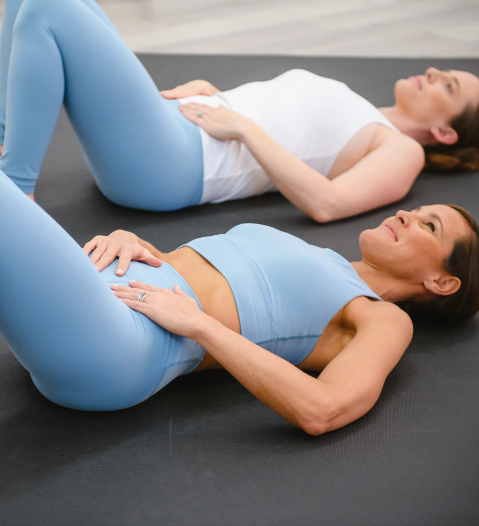
A woman’s core includes the muscles of her abdomen, hip, buttocks, back, and pelvic floor. The pelvic floor, in particular, is integral to the support and function of the pelvic organs, but weakens during pregnancy and labor. By following a routine of rotation, balance, and stabilization exercises designed specifically to strengthen and tighten her core muscles, your client will end up with a healthy core and pelvic floor.
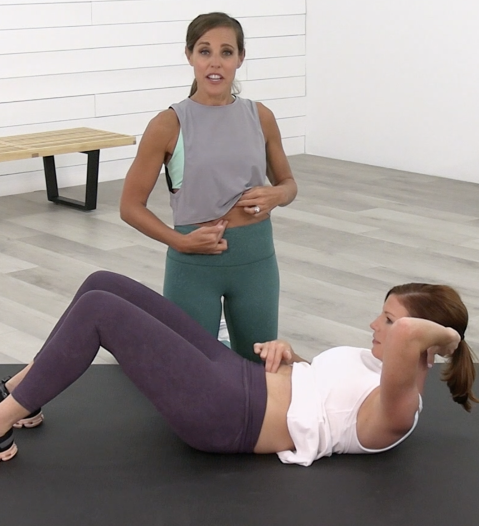
Diastasis recti abdominis (DR) is a condition in which the rectus abdominis muscle separates or thins along the middle of the muscle at the linea alba. This distance is referred to as the inter-recti distance. The separation can be mild or severe, and depending on severity, stops the core from functioning correctly. DR is most often seen during pregnancy and in the postpartum period, but also can affect women in the menopausal years.
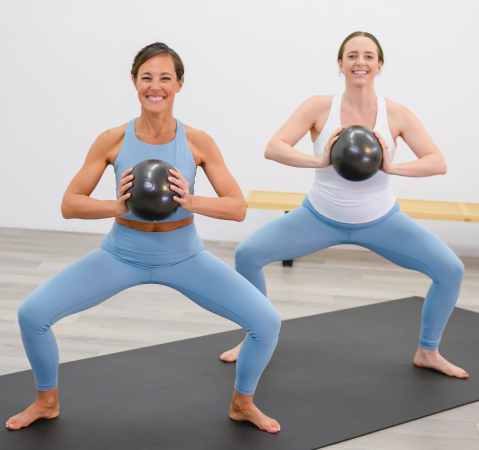
Be at least 18 years of age.
Have a solid understanding of the English language.
No prior certification required.
There are four quizzes, one quiz for each section. These quizzes are multiple choice and you have 3 tries to pass by 80%. Upon completion of the quizzes you will receive a certificate with your credentials and continuing education credits. This course is approved by ACE, AFAA, NASM, CanFitPro and AFPA.
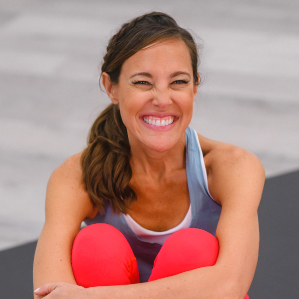
I’m so glad you found Moms Into Fitness and are checking out who we are and what we believe. I’m Lindsay Brin and I think being a mom is the most extraordinary and hardest job there is.
I got my degree in Exercise Science and have since worked with research professionals, physical therapists and University Research. I want to dedicate all my resources and know how to YOU!
I started this business because I love fitness, I love how it makes you feel and most importantly, I love helping others. When we feel good and nurture ourselves, it’s contagious to everyone around us. Fifteen years ago we started as a small family business. We’ve grown to a team of ten and have been able to serve over 85,000 moms.
This is the ninth version of this course, the embodiment of my rich background in pre- and postnatal fitness, years of research and professional collaboration, and a desire to give fitness professionals the resources to empower new moms. I feel so privileged to have served as the lead fitness expert in a prenatal and postnatal Pilot Study at SIU-E, and to have worked with Dr. Hopkins at Saint Louis University’s Department of Obstetrics, Gynecology & Women’s Health. Dr. Hopkins is one of the authors of the Committee Opinion from the American College of Obstetricians and Gynecologists, published in December of 2015 (reaffirmed 2019). This CO was replaced in April 2020 (reaffirmed 2023). She is also a contributing author to this course.
You will also hear from Megan Hoover, DPT. Megan is simply one of the most encouraging people one could ever meet. We met years ago when she flew in to teach the diastasis recti portion of our live fitness course. You will hear her encouragement weaved throughout. She is a DPT that specializes in women’s health. Her goal is to make mothers feel better and know that certain conditions like diastasis recti and urinary incontinence are not permanent. She encourages the fitness industry to make that client connection, knowing when it’s a good idea to refer women to a physical therapist for one-on-one. Most of the time we are that connection. As women don’t normally seek out physical therapy as a first resort, they seek out fitness.
Another voice comes from Rachel Phillips, DPT. She enjoys working with women to provide education and exercise instruction to develop programs that help to manage and alleviate pelvic floor dysfunction. She is well versed in Pain Neuroscience Education which helps provide education regarding pain and injury. Rachel’s background in dance allows her to have a keen ability to recognize movement problems and postural dysfunction. Her attention to detail and her compassion are obvious – you will find her videos in the Pelvic Floor education.
Smart fitness for moms in any stage: bump, new baby, and beyond.
